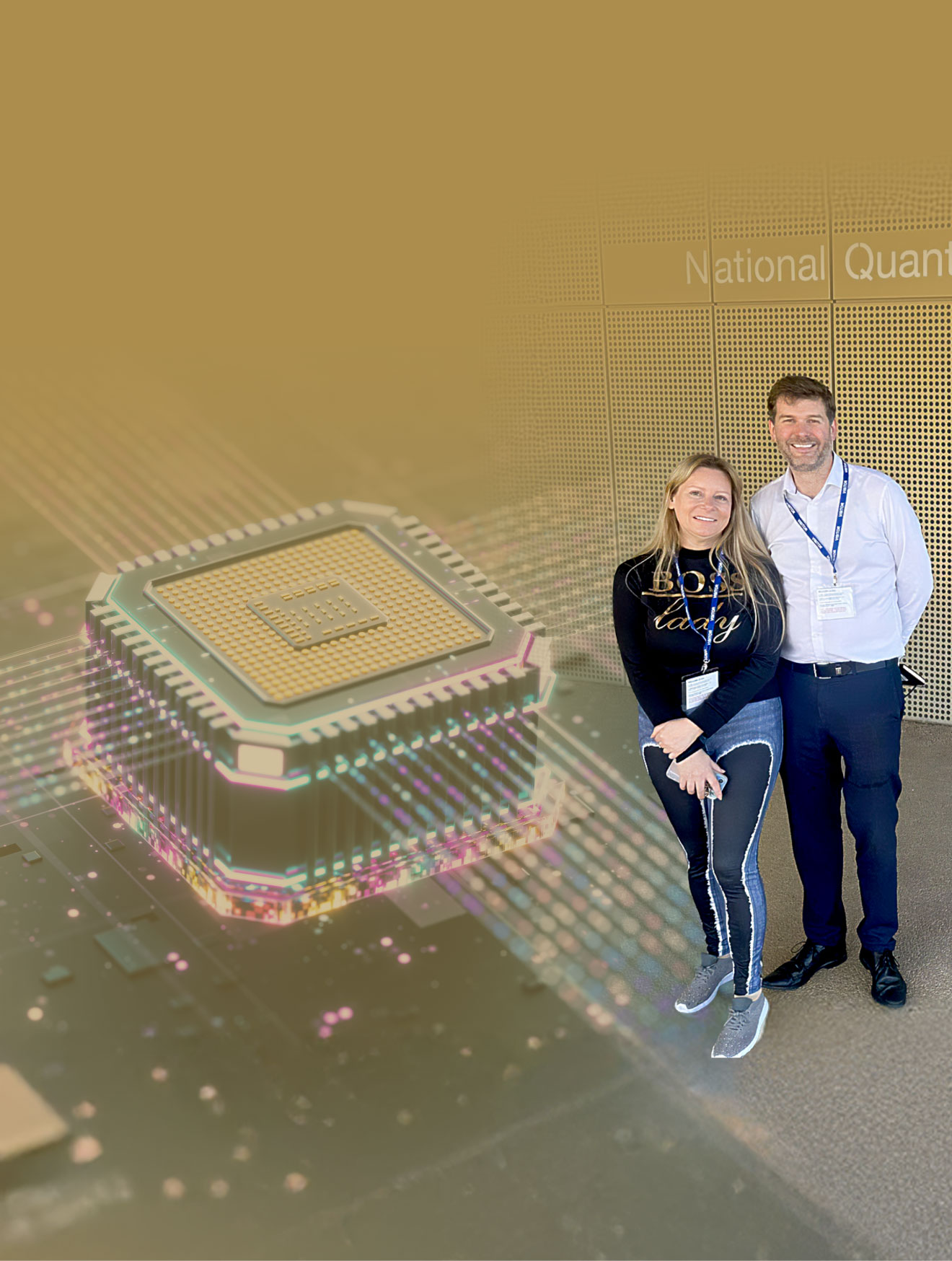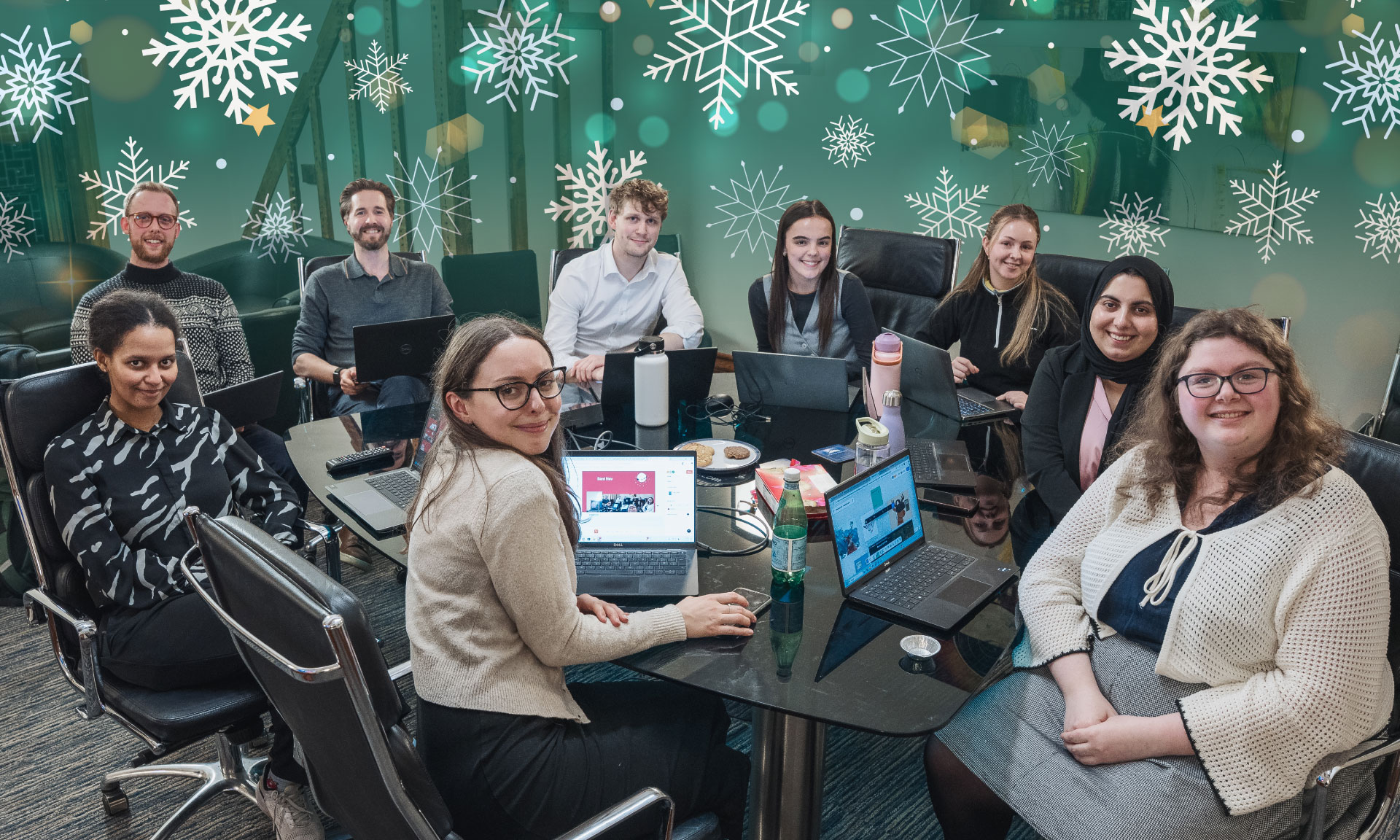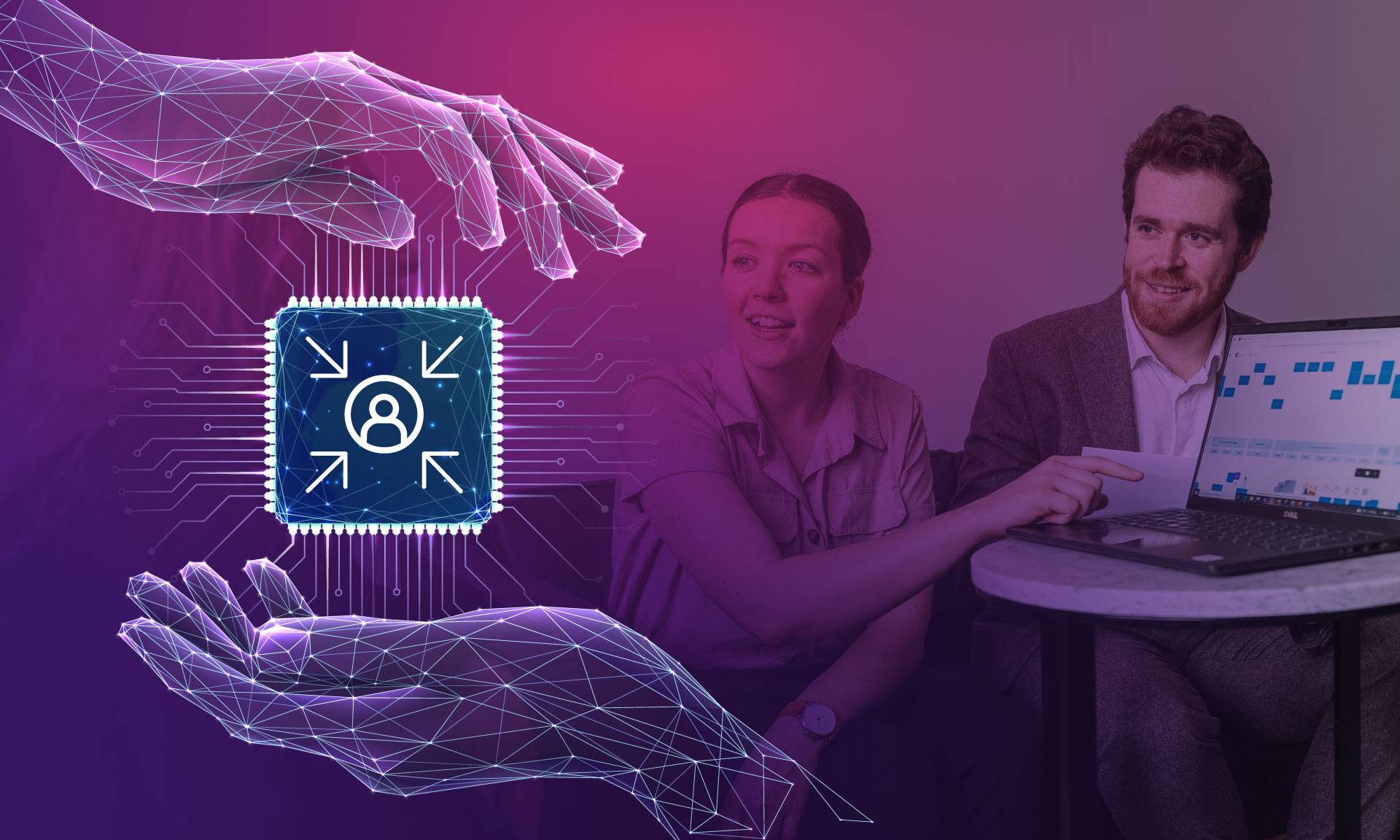I recently had the privilege of attending an innovation workshop hosted by the National Quantum Computing Centre (NQCC) at the Science and Technology Facilities Council’s Rutherford Appleton Labs in Harwell, Oxfordshire – an event that left me excited and inspired, and reaffirmed our mission to stay at the forefront of practical innovation.
We were invited to attend by the Medicines and Healthcare products Regulatory Agency (MHRA), one of our forward-thinking clients with whom we’re delivering groundbreaking work in AI and digital transformation. MHRA’s approach to harnessing advanced technologies for public good is an exemplar for technology adoption in Government, and the session explored the practicalities and challenges of unlocking the potential offered by quantum technologies in the next five to 10 years.
One of the highlights of the day was meeting Dr. Simon Plant, the NQCC’s Deputy Director for Innovation, and Mariana Manso, Innovations Sector Lead. Simon, Mariana, and the team are leading the UK’s charge into the quantum frontier, ensuring engagement with industry plays a key part in how the UK builds readiness for quantum. This frontier promises to fundamentally transform how we think about computing, problem-solving, and digital infrastructure.
Why Quantum Is a Game-Changer
Since the birth of modern computing and the first general-purpose electronic computers of the 1940s, we’ve been relying on binary logic systems that process information in 1s and 0s. Quantum computing rewrites that rulebook. It doesn’t just improve on what came before; it represents the first fundamental shift in the nature of computation itself.
Quantum computers use qubits rather than bits – units that can exist in multiple states simultaneously, thanks to the principles of quantum mechanics. This gives them the potential to tackle problems that classical computers either can’t solve or would take millions of years to attempt.
This isn’t science fiction – it’s science fact. It’s happening now and we had the privilege of seeing a suite of operational quantum computers deployed on-premise at the NQCC’s labs.
A Half-Billion Pound Investment in the UK’s Quantum Future
The UK Government is backing this with a serious commitment. Through the UK Quantum Strategy and Quantum Mission, over £500 million has been earmarked to bring quantum technologies from lab to market by 2030. These missions are part of the broader UK Science and Technology Framework, with ambitious plans to establish the UK as a global leader in science, innovation, and technology.
At the NQCC, we saw that ambition brought to life. Walking through the labs, we saw not one but multiple quantum computers, each using different architectures including photonic systems, superconducting qubits, cold atoms, and ion traps, each with their own strengths, weaknesses, and scaling challenges.
The NQCC isn’t picking a winner just yet. Instead, their focus is on building methods and approaches to benchmark and assess the suitability of different architectures for different real-world tasks, and to build a national capability that’s flexible, inclusive, and open to innovation.
We had the opportunity to speak directly to the physicists and researchers who are not only building, refining and testing these machines, but also deeply engaged in understanding where they can be most impactful, with a particular focus on healthcare and pharmaceuticals.
Quantum in Action: Real Use Cases in Health
Our conversations with the NQCC and MHRA delved into the real-world applications of quantum – beyond the hype. We discussed proof of concept projects where quantum computing had already begun to outperform classical approaches, especially in tasks like molecular simulation, protein folding, and optimisation of complex clinical trials.
These aren’t just academic exercises, they’re powerful demonstrations of how quantum can unlock new approaches to drug discovery, diagnostics, and therapeutic development. And the implications for regulators, such as the MHRA, are just as profound, for instance, how do we prepare the systems, skills, and ethical frameworks needed for these emerging capabilities?
Skills, Readiness, and the Innovation Mindset
One recurring theme throughout the day, which is particularly relevant to our work at Informed Solutions, was skills development. Everyone in the room agreed: it’s not just about building the machines, it’s about building readiness across the sector. That means training the next generation of scientists, developers, regulators, and leaders who will engage with these systems safely, ethically and responsibly.
Why It Matters for Informed Solutions and Our Clients
At Informed Solutions, innovation isn’t a buzzword, it’s a core value. We’ve built our reputation by helping our clients modernise and transform through the safe, ethical, and inclusive deployment of innovative technologies. As technologies like quantum computing, AI, Earth Observation, and Digital Twins begin to converge, we must be ready – not just to watch, but to lead.
Quantum computing won’t replace classical computation. We foresee a future where quantum capabilities – including compute, storage, and communications – can be seamlessly integrated with digital systems, offering best-of-breed hybrid solutions, supported by standardised development toolkits and intelligent, optimised deployment architectures. For the problems that quantum approaches can solve – problems that matter in healthcare, energy, climate, and national security – it will redefine what’s possible.
That’s why we engage. That’s why we listen. That’s why we go to places like the NQCC and learn from their experts. Because helping our clients stay informed, prepared and ahead of the curve is a critical part of our mission to create a safer, smarter, and more sustainable world.
The future of computing is being built now. Let’s make sure we’re part of shaping it.
*Picture above: Claire Harrison (Chief Digital and Technology Officer, MHRA) and David Lawton (Chief Innovation Officer, Informed Solutions), visiting the National Quantum Computing Centre for an Innovation Workshop.

Talk to Us
Get in touch for more information on how we can help you accelerate and de-risk your digital business change.












